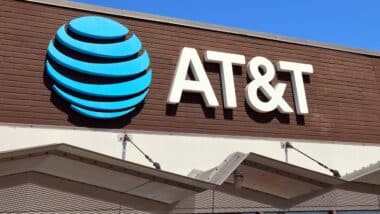 Navy Federal Credit Union is facing a class action lawsuit raising allegations that the financial institution’s NSF returned item fee practices are predatory and unethical.
Navy Federal Credit Union is facing a class action lawsuit raising allegations that the financial institution’s NSF returned item fee practices are predatory and unethical.
Many banks and credit unions are finding themselves facing customer complaints that their NSF and overdraft fee structures are deceptive and result in unanticipated charges for consumers. One of the latest financial institutions under investigation for its fee practices is Navy Federal Credit Union.
What is an NSF Returned Item Fee?
An NSF returned item fee, or a non-sufficient fund fee, is a fee assessed by a bank or credit union when a customer attempts to make a purchase despite not having the required amount of money in their account. NSF checks are often referred to as “bounced checks.” NSF fees are generally between $25 to $40, but when multiple fees are assessed for the same transaction, these charges can add up quickly.
Navy Federal Class Action Lawsuit
Plaintiff Ruby L. filed her class action lawsuit on Jan. 28 against Navy Federal, a credit union based in Virginia. Ruby alleges that the credit union’s fee policies regarding non sufficient fund fees and overdraft fees are predatory and deceptive. According to Ruby’s lawsuit, Navy Federal makes tens of millions of dollars from NSF fees every year.
Ruby claims that Navy Federal’s fee schedule and account documents are purposefully counterintuitive and deceptive. According to these documents, Navy Federal assesses a $29 non-sufficient funds fee when a customer attempts to make a transaction without enough money in their account to pay for it. In these cases, Navy Federal will reject the charge along with adding a fee.
However, Ruby claims that Navy Federal often assesses multiple NSF fees on a single transaction. Allegedly, following the rejection of the initial charge, Navy Federal will attempt to reprocess the transaction. Ruby’s lawsuit claims that despite customers not asking for these charges to be reprocessed, or even knowing that they have been reprocessed, Navy Federal treats each attempt to reprocess the charge as a new and unique transaction. When the reprocessed transaction fails to go through, a new NSF returned item fee is assessed. This fee practice can result in multiple NSF charges for the same attempted transaction.
According to Ruby’s lawsuit, Navy Federal’s account documents indicate that only one NSF fee will be assessed per transaction. As these initial transactions are reprocessed without the knowledge or by the request of the customer, her lawsuit claims that these reprocessed charges should not be treated as a new transaction and therefore should not be subject to additional NSF fees.
Ruby’s lawsuit further alleges that Navy Federal purposefully reprocesses transactions despite knowing that the account does not have the required funds, and that these reprocessed transactions are often attempted with the intention of assessing additional fees.
Ruby’s NSF Returned Item Fee Lawsuit is Case No. 1:19-cv-00103-LO-MSN, in the U.S. District Court for the Eastern District of Virginia, Alexandria Division.
Join a Free Returned Item Fee Class Action Lawsuit Investigation
If you were charged multiple returned item fees (also known as NSF fees or insufficient funds fees) on the same transaction by your bank, you may be entitled to compensation.
ATTORNEY ADVERTISING
Top Class Actions is a Proud Member of the American Bar Association
LEGAL INFORMATION IS NOT LEGAL ADVICE
Top Class Actions Legal Statement
©2008 – 2026 Top Class Actions® LLC
Various Trademarks held by their respective owners
This website is not intended for viewing or usage by European Union citizens.















14 thoughts onNSF Returned Item Fee Lawsuit Alleges Predatory Banking Practices
I have the same issue. It’s overwhelming and the fees are more expensive than what my actual bills that got returned.
Please add me.. I am going to the process & when they said they would transfer me to resolution supervisor/dept. they hung up on me.
Add me. I just got charged AGAIN four times for -29$ returned check fees putting me -92.21 in my account. I am calling tommarow morning to ‘try’ to hash this out. But this is still unacceptable.
They are even pulling my bills out several days early. Slated for 07JUL22 but somehow NOW ‘trying’ to be pulled. When I haven’t even been paid..